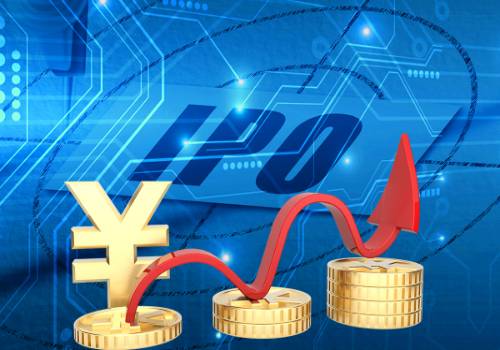世界快资讯:Xinhua Headlines: So-called "de-risking" just another term for "decoupling" used by Washington, allies to contain China
* In essence, de-risking is hardly different from decoupling.
* Washington"s paradoxical mindset -- while it needs China"s cooperation in some fields, it wants to continue its containment of it.
* The new word represents Washington"s renewed effort to appease its allies.
 (资料图片仅供参考)
(资料图片仅供参考)
BEIJING, May 27 (Xinhua) -- Recently, "de-risking" has gained popularity among officials in Washington and some Western capitals. Previously used by America"s European allies in their China policy, the newly fashionable word has been officially adopted by the U.S. administration.
During the three-day gathering of the U.S.-led Group of Seven (G7) that ended on Sunday in Hiroshima, Japan, the leaders of the bloc said in a communique that they are not "decoupling" from China but "de-risking" instead.
For analysts and observers, the elaborately crafted term might sound milder than decoupling, but the two words are much the same thing in essence. They argued that the changed narrative is just another word game played by Washington and its allies to contain China.
This photo taken on Aug. 16, 2022 shows the White House in Washington, D.C., the United States. (Xinhua/Liu Jie)
FROM DECOUPLING TO DE-RISKING
In a speech on China held in March, European Commission President Ursula von der Leyen said that "our relations are not black or white -- and our response cannot be either. This is why we need to focus on de-risk -- not decouple." Following her remarks, senior U.S. officials have parroted the term "de-risking" in an attempt to glorify decoupling rhetoric.
U.S. President Joe Biden used the same language at a press conference after the G7 summit. "We"re not looking to decouple from China. We"re looking to de-risk and diversify our relationship with China."
Shifting from decoupling to de-risking, Washington"s changed tone on China comes as the United States has been struggling with multiple economic woes at home, ranging from the risk of U.S. default on debt to the financial turmoil exacerbated by problematic interest hikes and the sudden collapses of several banks. On Wednesday, the credit rating agency Fitch Ratings announced that it has placed the U.S. AAA-rated long-term foreign-currency issuer default rating on a "negative watch" as the debt ceiling deadlock continues.
Meanwhile, decoupling from the world"s most promising and dynamic market is unwise and unbearable for U.S. companies. Ditto for American consumers. With affordable Chinese products, they can avoid a more severe cost of living crisis.
Figures also show that decoupling from China goes against the trend. U.S.-China trade in goods hit a new record of 690.6 billion U.S. dollars in 2022, according to data published by the U.S. Bureau of Economic Analysis in February.
A container ship of China"s COSCO Shipping docks at a container terminal of the Port of Long Beach in California, the United States, Aug. 20, 2021. (Xinhua/Gao Shan)
William Reinsch, a senior adviser at the Center for Strategic and International Studies (CSIS), a Washington-based think tank, was quoted by Bloomberg as saying that the latest data showed that "consumers have minds of their own."
Under such circumstances, Washington has attempted to beautify its decoupling rhetoric, making it more acceptable to the U.S. public, especially U.S. companies. Such a change in language by the U.S. administration also reflects its paradoxical mindset. While it needs China"s cooperation in some fields, Washington wants to continue its containment of it.
Moreover, the use of this new word represents Washington"s renewed effort to appease its allies. If decoupling goes too far, it will not only drag down the U.S. economy but also drive away its allies, an opinion piece published by Politico warned.
Over the past years, even Washington"s allies have questioned America"s hostile policies toward China. French President Emmanuel Macron said the European Union and China should work together to avoid "decoupling and breaking the chain."
A recent research report by an Austrian think tank estimated that if decoupled from China, Germany will see its gross domestic product (GDP) drop by 2 percent per year, equivalent to a loss of 60 billion euros (some 65 billion dollars).
"Australia doesn"t want to decouple from China. What Australia wants to do is to improve our trading relationship with China," said Australian Minister for Trade and Tourism Don Farrell in a recent interview with Xinhua.
By tempering its harsh narrative with a softer one, the United States aims to paper over cracks with its allies. "The speech was replete with support for the EU position," tweeted Emily Benson, an expert on trade at the CSIS, referring to U.S. National Security Advisor Jake Sullivan"s speech at the Washington-based Brookings Institution in April, where the official pressed for de-risking.
Customers shop at a Costco store in Foster City, the United States, Jan. 12, 2023. (Photo by Li Jianguo/Xinhua)
REAL RISKS
"A substantial change in policy?" asked Alex Lo, a columnist for The South China Morning Post. "I doubt it. It just sounds less belligerent; the underlying hostility remains."
A change in words does not mean a difference in action. In essence, de-risking is hardly different from decoupling.
Washington has been stepping up its siege of China in high technology and other areas. Recent moves include advancing the China competition bill 2.0 to the heated discussion on the so-called resilient supply chains of semiconductors at the G7 summit and from advocating "friend-shoring" to restricting U.S. investment in China.
In the view of Washington and some of its allies, the risks they face are induced by China, and only by containing China can they eliminate them. Such a hegemonic mentality creates real risks for the world.
"The biggest risks facing the world today are: the hegemonic act of using military advantage to launch barbaric invasions of vulnerable countries such as Afghanistan, Iraq and Syria, the bullying act of undermining the principle of market economy and international trade rules by overstretching the concept of national security and wantonly going after foreign companies, and trying to turn back the wheel of history by hyping up "democracy versus authoritarianism" narratives and dragging the world back to the era of the Cold War," said Chinese Foreign Ministry spokesperson Wang Wenbin.
"Clearly, none of these risks come from China. They all come from a handful of countries that have sought to pin various labels on China," Wang added.
Washington"s allies might think they will benefit from following America"s foreign policy. But the United States is so self-serving that its allies have become half accomplices and half victims.
The Plaza Accord signed in 1985 caused the Japanese economy, then the world"s second-largest one, to plummet into its "lost decades" before Germany"s Siemens and France"s Alstom fell victim to U.S. super-suppression.
A recent prime example is the U.S. Inflation Reduction Act. Granting green incentives and tax breaks for companies that produce in the United States, the act has badly hurt Europe, with more European companies tempting to relocate to the United States.
Croatian political analyst Mirko Mavric said that "the risk for Europe is to become an extended arm of the U.S. interests," adding this has always been fatal for Europe, as Americans think first of all about themselves and their interests.
"By dragging the G7 bloc to suppress China under the pretext of de-risking, the country is deliberately undermining free trade and the global economic division of labor system," said Japanese scholar Kazuteru Saionji, a visiting professor at Higashi Nippon International University, who expressed the belief that the United States is peddling imaginary threats in its own version of the world order.
Compared to the United States, China has brought the world opportunities, cooperation and stability. According to the General Administration of Customs, China"s total goods trade reached a record 42.07 trillion yuan (6.2 trillion dollars) in 2022, up 7.7 percent year on year, topping the world for six consecutive years.
China is a major trading partner of more than 140 countries and regions. The International Monetary Fund forecast that China"s contribution to global economic growth will stand over one-third this year.
"It is really not wise to consider wholesale decoupling (with China), for which we will pay a very high economic price over time," said Craig Allen, president of the U.S.-China Business Council, adding that even for the technology sector, "a better job" could be done "to narrow the definition of national security and allow greater technology, talent and capital flows between the two countries."
For Volker Treier, head of foreign trade at the Association of German Chambers of Industry and Commerce, there is no real alternative to China. Neither the planned transition to renewable energies nor the transition away from combustion engines would progress if there was a decoupling from China, he said.
(Video reporters: Ji Ze, Yang Yiran, Yu Fuqing, Yao Bing, Shen Danlin, Lin Lin, Li Ziwei; Video editors: Zhang Yucheng, Li Qin, Zhou Yang)
关键词:
-
 世界快资讯:Xinhua Headlines: So-called "de-risking" just another term... *Inessence,de-riskingishardlydifferentfromdecoupling *Washington spara
世界快资讯:Xinhua Headlines: So-called "de-risking" just another term... *Inessence,de-riskingishardlydifferentfromdecoupling *Washington spara -
 GLOBALink | Science has no boundaries: experts at sci-tech forum in Beijing-今日精选 Scholarsattendingasci-techforuminBeijingspokeoftheimportanceofpromot
GLOBALink | Science has no boundaries: experts at sci-tech forum in Beijing-今日精选 Scholarsattendingasci-techforuminBeijingspokeoftheimportanceofpromot -
 今日关注:China's C919 jetliner goes into commercial operation ThisphototakenonMay28,2023showsaC919,China sself-developedlargepass
今日关注:China's C919 jetliner goes into commercial operation ThisphototakenonMay28,2023showsaC919,China sself-developedlargepass -
 In pics: exhibition spotlight at Zhongguancun Forum 全球报道 AstaffmemberdisplaystheHQIntelligentSystem(HIS)attheexhibitionareao
In pics: exhibition spotlight at Zhongguancun Forum 全球报道 AstaffmemberdisplaystheHQIntelligentSystem(HIS)attheexhibitionareao -
 Current COVID-19 infections in China feature low prevalence level, mild symptoms: experts|前沿资讯 BEIJING,May28(Xinhua)--TheoverallCOVID-19infectionsinChinahaveentere
Current COVID-19 infections in China feature low prevalence level, mild symptoms: experts|前沿资讯 BEIJING,May28(Xinhua)--TheoverallCOVID-19infectionsinChinahaveentere -
 全球快报:枇杷飘香迎丰收 智能大棚保质提量促增收 央视网消息:小满节气过后就是枇杷成熟的季节。近日,浙江丽水莲都区太平乡的4000亩枇杷迎来丰收,其中还有
全球快报:枇杷飘香迎丰收 智能大棚保质提量促增收 央视网消息:小满节气过后就是枇杷成熟的季节。近日,浙江丽水莲都区太平乡的4000亩枇杷迎来丰收,其中还有 -
 行走江苏湿地城市 | 生态和谐、“湿”意盎然,全国媒体点赞江苏湿地之美_天天最资讯 5月24日-5月27日,“生物多样性之美——‘湿’意盎然的生态答卷”网上主题宣传“行走江苏湿地城市”活动采
行走江苏湿地城市 | 生态和谐、“湿”意盎然,全国媒体点赞江苏湿地之美_天天最资讯 5月24日-5月27日,“生物多样性之美——‘湿’意盎然的生态答卷”网上主题宣传“行走江苏湿地城市”活动采 -
 四月份江苏工业增长21.5% 向好态势进一步显现 世界头条 省工信厅最新工业分析显示,今年以来,江苏企业积极研发新品,抢抓市场机遇,企业订单进一步回升,产业链优
四月份江苏工业增长21.5% 向好态势进一步显现 世界头条 省工信厅最新工业分析显示,今年以来,江苏企业积极研发新品,抢抓市场机遇,企业订单进一步回升,产业链优 -
 禁噪、食安保障工作逐步开启 专家教您如何安全备战中高考 再过十几天,又将迎来一年一度的中高考。江苏全省各地服务中高考的各项工作也正在紧锣密鼓地安排和落实当中
禁噪、食安保障工作逐步开启 专家教您如何安全备战中高考 再过十几天,又将迎来一年一度的中高考。江苏全省各地服务中高考的各项工作也正在紧锣密鼓地安排和落实当中 -
 今热点:在追赶超越中矢志创新 科技创新是提升国家核心竞争力的必由之路。以科技创新为引领,把实现科技自立自强作为国家发展的战略支撑,
今热点:在追赶超越中矢志创新 科技创新是提升国家核心竞争力的必由之路。以科技创新为引领,把实现科技自立自强作为国家发展的战略支撑,
热点
-
 百家融媒重庆行丨老院换新颜艺术进乡村 璧山这样激活“一池春水” 最新资讯 在“云雾花涧”项目核心区,璧北河...
百家融媒重庆行丨老院换新颜艺术进乡村 璧山这样激活“一池春水” 最新资讯 在“云雾花涧”项目核心区,璧北河... -
 百家融媒重庆行丨全国百家重点网络媒体记者走进璧山 看招商引资全新打法 走进位于重庆璧山区的重庆弗迪锂电...
百家融媒重庆行丨全国百家重点网络媒体记者走进璧山 看招商引资全新打法 走进位于重庆璧山区的重庆弗迪锂电... -
 天天热议:焦点访谈:多措并举 推动人口高质量发展 央视网消息(焦点访谈):人口问题...
天天热议:焦点访谈:多措并举 推动人口高质量发展 央视网消息(焦点访谈):人口问题... -
 天天热门:6分钟看国产大飞机C919十六年成长全记录 5月28日,国产大飞机C919将开启商...
天天热门:6分钟看国产大飞机C919十六年成长全记录 5月28日,国产大飞机C919将开启商...
文章排行
娱乐图赏
-
 怎么清理磁盘垃圾_怎么清理磁盘|全球热消息 1、首先单击“开始”按钮,然后选...
怎么清理磁盘垃圾_怎么清理磁盘|全球热消息 1、首先单击“开始”按钮,然后选... -
 天天速读:土耳其总统选举开始进行第二轮投票 新华社安卡拉5月28日电(记者熊思...
天天速读:土耳其总统选举开始进行第二轮投票 新华社安卡拉5月28日电(记者熊思... -
 27岁女司机开奔驰撞伤5人,你怎么看? 世界短讯 5月27日上午7时许,山东省聊城市东...
27岁女司机开奔驰撞伤5人,你怎么看? 世界短讯 5月27日上午7时许,山东省聊城市东... -
 河北警方破获“帮信罪”案件 7人落网 近日,河北警方公布一起帮信罪案件...
河北警方破获“帮信罪”案件 7人落网 近日,河北警方公布一起帮信罪案件...